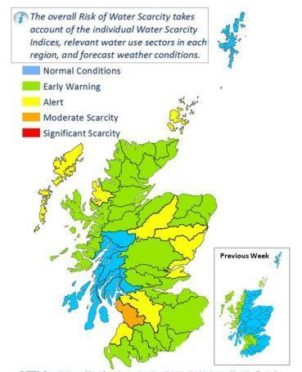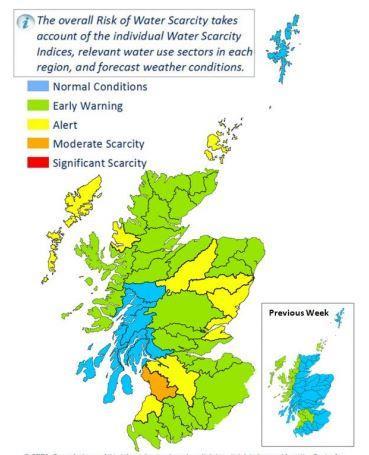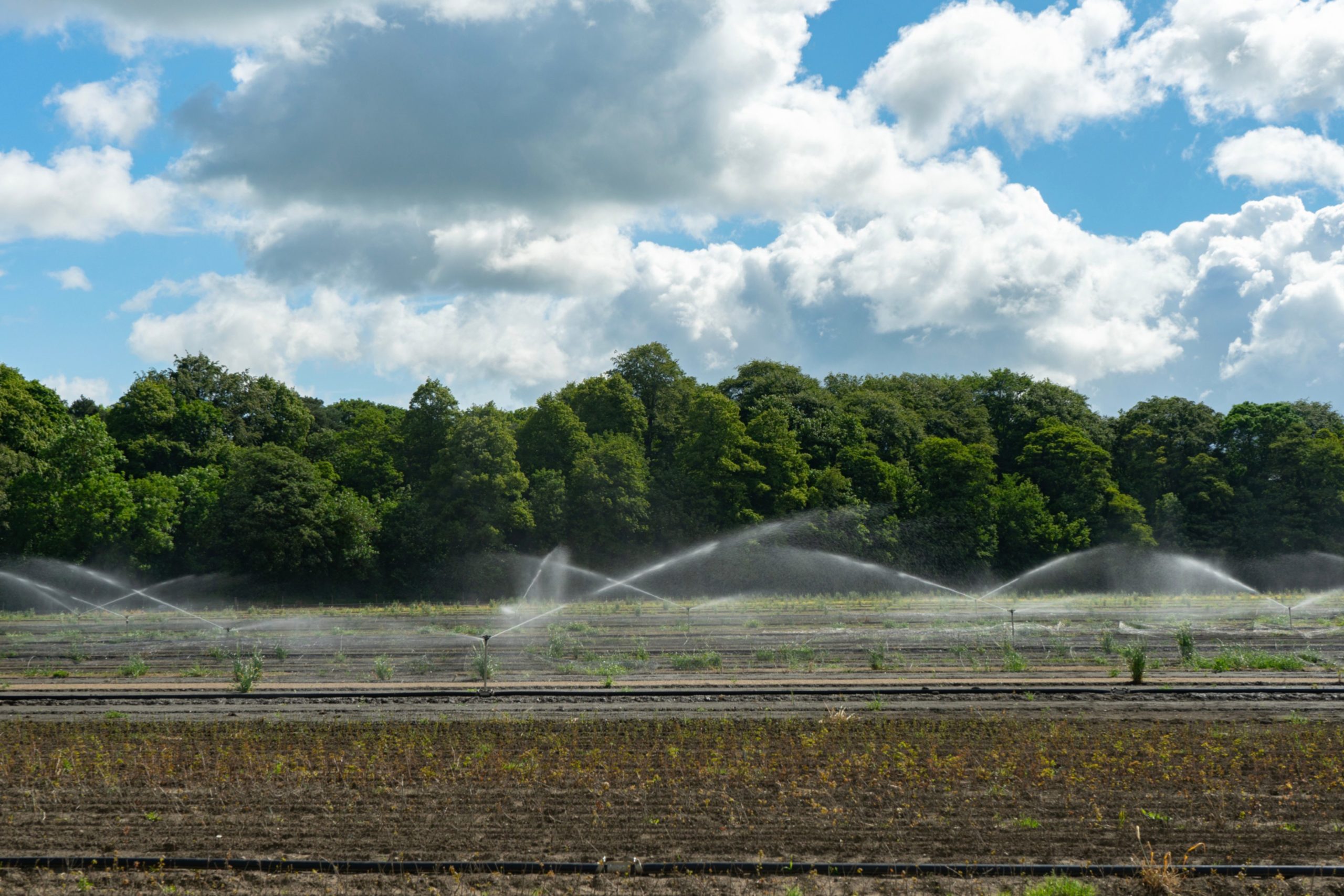Residents across the north of Scotland are being urged to consider their water usage after an abnormally dry June.
The entire Western Isles and Orkney have been put on alert, along with parts of the Highlands and Grampian.
Most of Scotland has been moved up a level in the report from Sepa, from “normal conditions” to “early warning”, but some parts of southern Aberdeenshire and Moray have been moved to the more serious “alert”.
Irvine and Ayr, meanwhile, has been moved up to the second-highest level of “moderate scarcity”.
The warning comes as Sepa says climate change will mean water scarcity will become an increasingly common problem across the country in years to come.
In the past two weeks, ground conditions have continued to dry after below-average rainfall across Scotland last month.
The change of level to “alert” on the coast between Fife and Aberdeen is a result of low river levels in the eastern catchment area – not unusual for this time of year, but the longer term forecast predicts even more hot and dry weather with low rainfall.
‘Please listen to us’: Western Isles 12-year-old’s climate plea to older generation
The agency has issued guidance urging farmers and golf course managers in the yellow alert areas to only irrigate when absolutely necessary, to try irrigating at night to reduce losses from evaporation, and to make sure equipment is not leaking.
Additionally, those taking water from burns and small rivers should explore how they might avoid irrigating at the same time as their neighbours, and consider whether it is possible to switch to using groundwater if conditions worsen.
Terry A’Hearn, chief executive of Sepa, said: “The severity of the water scarcity picture in part of Scotland is further evidence that water scarcity will become more and more prevalent – and is just one of the many consequences of climate change the country faces.
“Sepa’s strategy for tackling this definitive challenge of our time is called ‘one planet prosperity’, focused on helping our communities and businesses thrive within the resources of our one planet.
“That is why it is important for businesses that abstract water to understand that Sepa is here to offer support and guidance, and we are setting out the key measures abstractors should be taking to conserve water, which is shared and finite.
“We want to work with businesses to plan long-term about their water usage so that we can preserve the resource as effectively as possible. This will protect both Scotland’s rivers and lochs and reduce their business risks.”
More information about water scarcity can be found on the Sepa website here.


